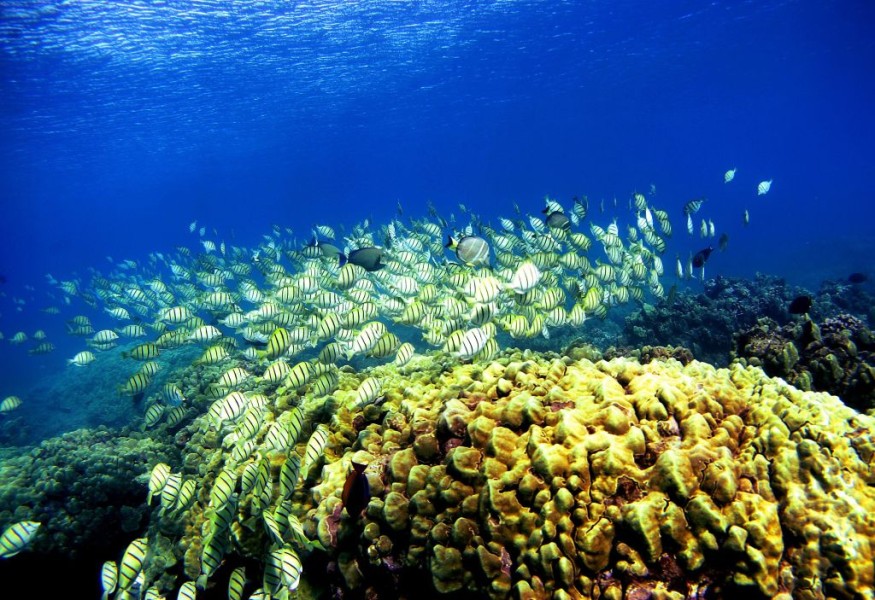Any fish organisms in the more acidic, CO2-rich waters of the future will have greater reproductive organs, recent research shows.

Australian researchers looked at improvements to the common triplefin, common to the coast of New Zealand, in natural underwater CO2 hotspots over three years.
They discovered that the biologically 'opportunistic' population capitalizes on improvements in the aquatic ecosystems to develop larger sex organs that contain more sperm and eggs, increasing the likelihood of successful reproduction.
Experts say elevated CO2 also improves prey resources and can heighten the fitness of each common triplefin.
There are well known adverse consequences of elevated CO2 in our waters, which induces ocean acidification.
Will Tweaking CO2 Levels Affect Fish's Life?
Although this beneficial physiological impact is likely to extend to other fish species worldwide, experts claim it is likely to be an anomaly for most fish species that may be removed by rising CO2 levels.
It interacts with the water to create carbonic acid as carbon dioxide reaches the waters, contributing to the seas' acidification.
It may induce failure of physiological functions such as respiration, circulation, and metabolism until excess CO2 reaches the bloodstream of a fish in the water.
High CO2 levels in the blood may also cause fish to lose their sense of smell, undermining their ability to search, deter predators, and find good spawning grounds.
Nevertheless, researchers suggest that 'less well documented and may also be counterintuitive' are the indirect consequences of high CO2.
Lead author Professor Ivan Nagelkerken from the University of Adelaide in Australia said that about one-third of the extra CO2 emitted into the environment by carbon dioxide was consumed by the warming seas, allowing the oceans to acidify.
While experts notice that many animals are adversely impacted by ocean acidification in their actions and physiology, they observed a rise in the development of eggs and sperm and further offspring.
The experts researched fish organisms at White Island, a volcanic island situated in the Bay of Plenty of the North Island of New Zealand.
Does Ocean Acidification Affect Fish Reproduction?
CO2 hotspots are natural volcanic underwater vents in the region, releasing a higher volume of gas than other regions.
Local acidification of seawater by up to 1.5 pH units below the normal ocean pH of 8.1 to 8.2 is induced by CO2 vents.
These vents were used by the team to equate habitats with the CO2 levels expected for the end of this century with fish populations existing under the 'natural' CO2 levels of today.
Experts added that ocean acidification had no detrimental impact on the typical triplefin and that its larger gonads did not come at a physiological expense.
The researchers observed that other fish species, which are less prevalent in this specific ecosystem, did not, possibly because of their less competitive existence, have such a reproductive production benefit.
According to the team in their report, published in PLOS Biology, species that capitalize on future resource enrichment will accelerate their reproduction and increase their populations.
Check out more news and information on Animals on Science Times.
© 2026 ScienceTimes.com All rights reserved. Do not reproduce without permission. The window to the world of Science Times.











